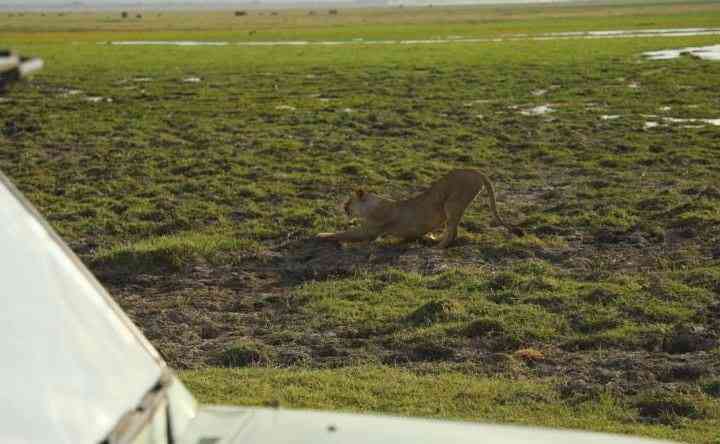A lioness in a playful mood after a sumptuous meal. [Jayne Rose Gacheri/The Standard]
×
The Standard e-Paper
Fearless, Trusted News

Have you ever heard about conservation holidays and conservancy destinations?
Not many travellers and vacationers know about this, but many have travelled to such destinations and taken such vacations, only probably did not realise this.